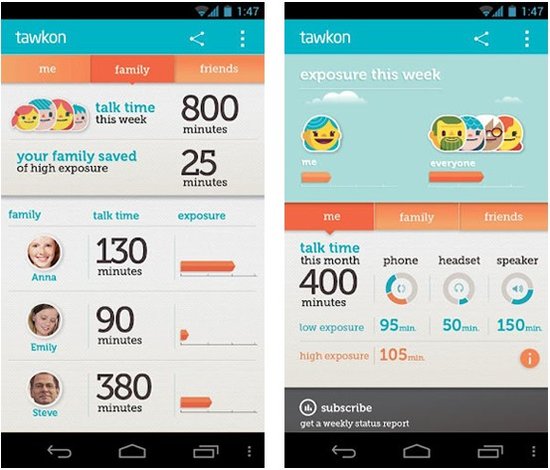"Not interested." Sent from my iPhone
This article refers to the address: http://
This is an email from Steve Jobs responding to the complaint from startup Tawkon. It has consistently been a few words and has refused to be thousands of miles away.
Rejected story
Back in March 2011, the startup in Tel Aviv, Israel, set out to develop an application for the iPhone to monitor the amount of radiation from mobile phones for the iPhone, Tawkon. However, this app has never been approved by Apple. The Tawkon team said that despite efforts to communicate with company executives at Apple headquarters, and even directly complained to Jobs, it ultimately failed.
As for the reasons for the rejection, neither side disclosed it, but Tawkon mentioned in the blog that Apple "has studied a lot of technical solutions with us to overcome the limitations of the API." The guess may be related to the application's access to data, and Apple seems to Not willing to do this.
In desperation, the company pressed the restart button to focus on the Android platform, and the iOS app was moved to Cydia. On April 25 this year, the app officially launched on Google Play.
Amit Lubovsky, director of marketing and business development, said that during the period, "we have experienced a huge process of reshaping the brand, and we want to apply the applications, information, websites, markets, and everything."
Lubovsky told Wired Magazine that the iOS app is aimed at early supporters and Geek. Although the technique used to detect radiation is not different, it is “completely different and not so geeky on the front end.â€
“Do not have to stay away from the phone, but the user has the right to knowâ€
Cell phone radiation is a controversial topic and a problem that users often overlook. There is no authoritative answer to the impact of cell phone radiation on users. Although the FCC imposes strict limits on the emissivity of mobile phones and tablet devices, ordinary users cannot understand the degree of radiation of the devices. "Help users minimize potential damage." This is the original intention of developing such an application.
The use of the phone to protect the app has been labeled as "anti-mobile", and perhaps this is one of the reasons Jobs refused. But Lubovsky said:
"We don't want people to stay away from mobile phones, but we want people to know as much as possible."
Collection, analysis, and alerting

Tawkon application interface
In short, Tawkon works by using cell phone data to determine the amount of radiation absorbed by the user and making some suggestions. These data sources include network type, network operator, frequency band, signal strength, cell phone signal, and more.
According to Tawkon, the level of radiation during a user's call is largely affected by the signal strength. For example, in a weak signal environment, the phone constantly searches for signals. “One minute of high intensity radiation is equivalent to five hours of low radiation.â€
“Sometimes, reducing damage is as simple as moving a few steps.â€
Company CEO Gil Friedlander said this.
In standby or talking state, Tawkon starts real-time monitoring. When the radiation level is high, Tawkon will put forward some prevention suggestions, such as keeping a certain distance from the mobile phone, using Bluetooth headset to talk. The app also incorporates social features that allow users to invite family or friends to use, which allows for intuitive comparison of radiation levels.
Gil Friedlander said in an interview with the Wall Street Journal that it was technically very complicated and they took a year to master the correct algorithm for calculating radiation levels. Tawkon has now passed the Satimo test, a FCC-certified professional agency that radiantly grades a wide range of devices.
Previously, Tawkon also launched the BlackBerry app. In the future, the company is also preparing to enter the Windows Phone platform.
Bossgoo(China)Tecgnology.(Bossgoo(China)Tecgnology) , https://www.cn-gangdao.com